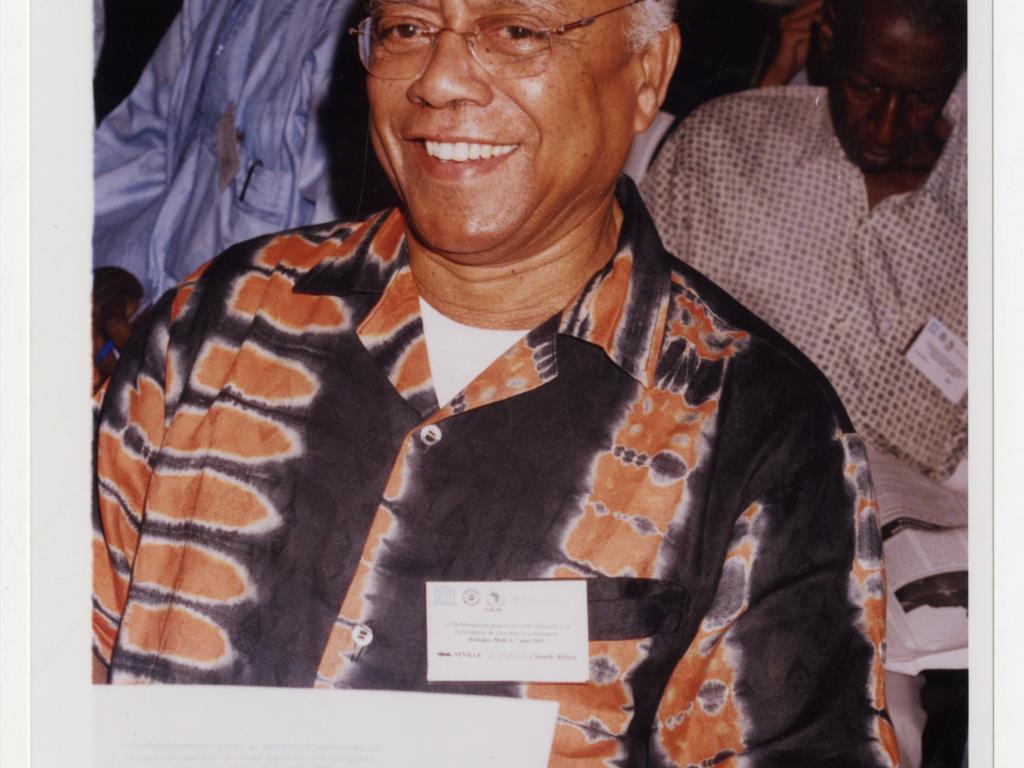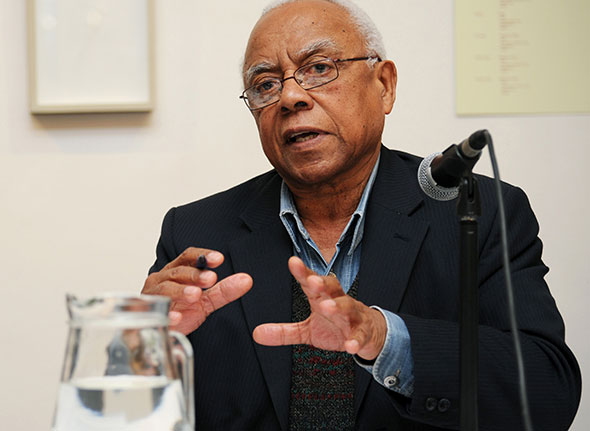CAS hosts dialogue on Neville Alexander


The third Neville Alexander seminar took place on Thursday, 27 August. The event, titled: ‘We need a new language: a dialogue with Neville Alexander on the language question’, formed part of a 3-day focus on the life and scholarly contribution of the late Dr. Alexander.
The annual Neville Alexander seminars are hosted by the Centre for African Studies (CAS) in association with Linguistics and were established at the University of Cape Town in 2013 to commemorate his death on 27 August. The aim of the discussion series is to engage critically and constructively with different aspects of Dr. Alexander’s work.
According to event organizer and CAS research fellow Nkululeko Mabandla, the first seminar was on multilingualism and the role of isiXhosa in higher education. “In 2014, we took stock of work on intellectualization and language planning” says Mabandla. “This third Neville Alexander Seminar brought together scholars and activists working on and with language. The theme took its cue from recent discussions around language at UCT, particularly the call for a ‘new language’ which will allow us to imagine and articulate a new, de-colonial world; a language which challenges, as Rhodes Must Fall has noted, ‘the pacifying logic of liberalism’ explains Mabandla.
Both Mabandla and Associate Professor Ana Deumert (Linguistics section) made the point that in order to craft the new language, it is important to look at creativity: creativity in, through and with language.
Panelists included Hip-hop artist and community activist BlaqPearl; Xolisa Guzula (long-term colleague of Neville Alexander and language activist), Associate Professors Adam Haupt (Centre of Film and Media Studies), and Wandile Kasibe (PhD candidate in Sociology and member of the Rhodes Must Fall movement). The panel was moderatored by Professor Deumert.
The debate which at times moved beyond English into Afrikaans and isiXhosa, raised a wide range of issues including: language and identity, language and power, language and trauma, language and decolonization, the role of multilingualism at UCT, the question of how English can be tweaked and twisted to be not just ‘the white man’s language’ (as Wandile Kasibe said), but also a medium through which new futures can be articulated.